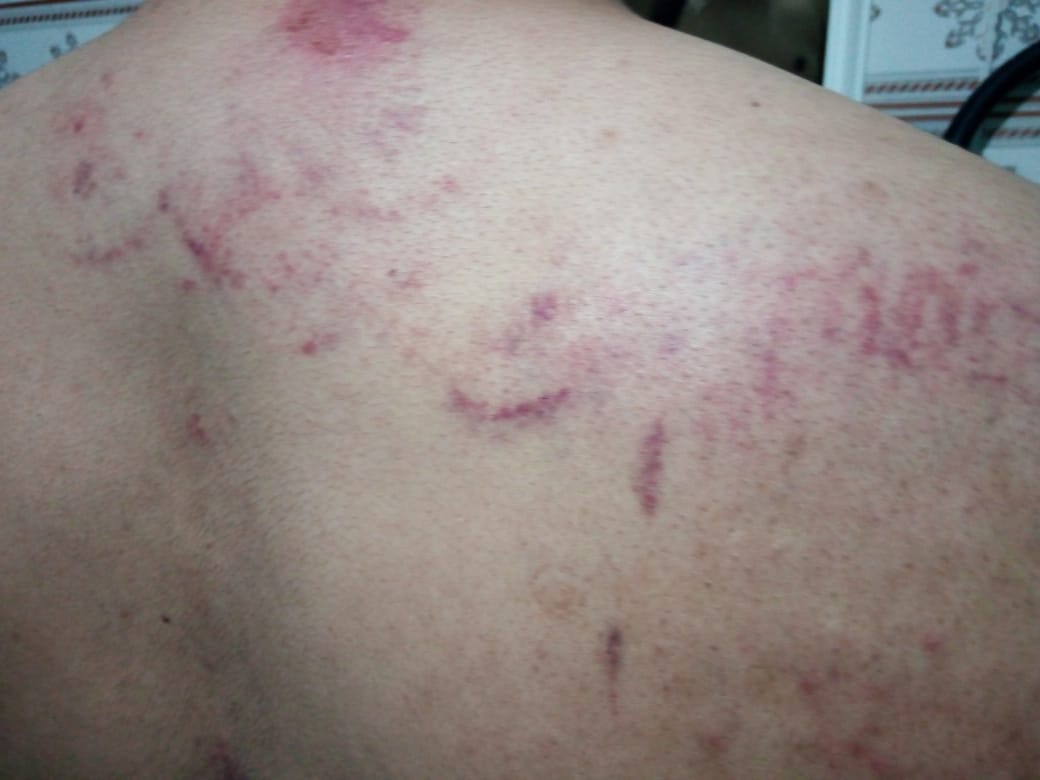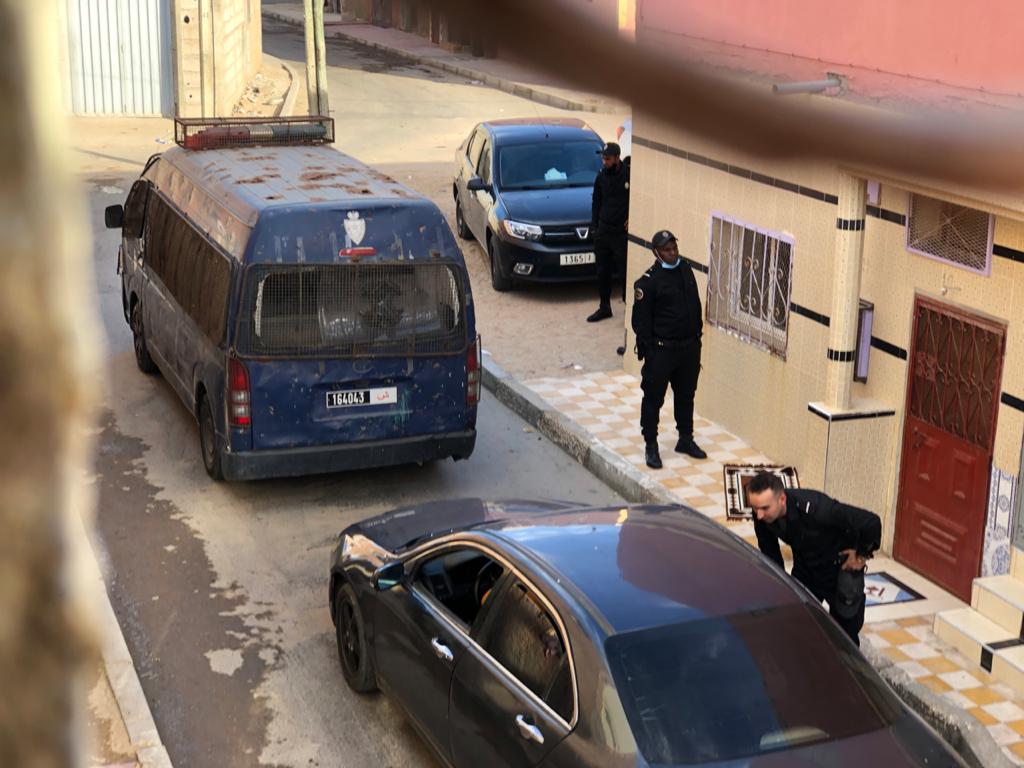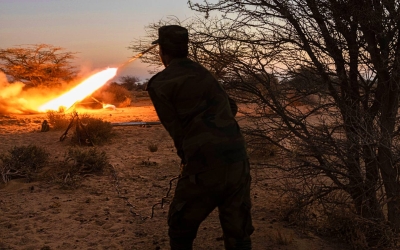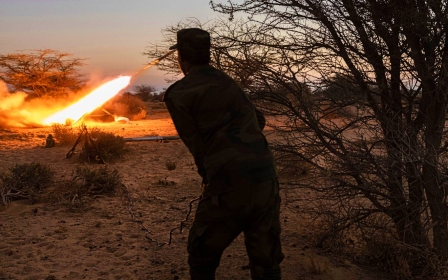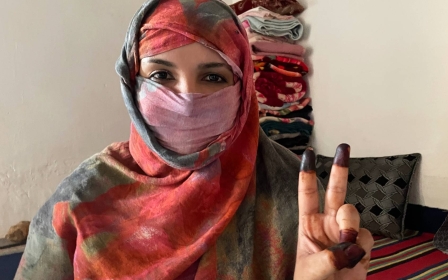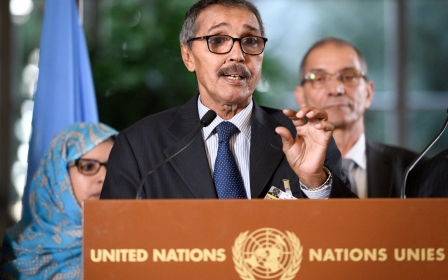'I can be killed at any time': Police abuse in Moroccan-controlled Western Sahara
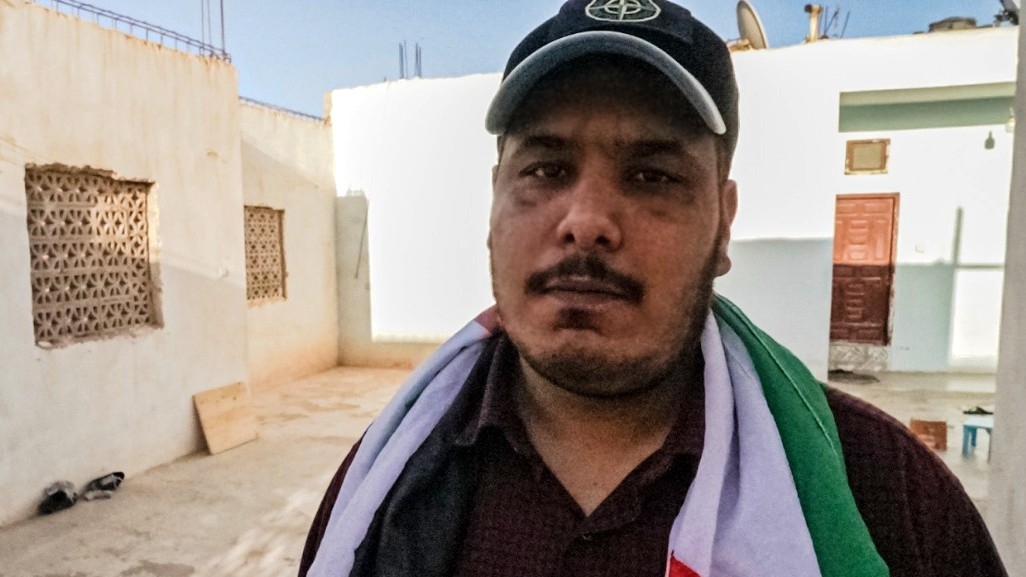
In the hours leading up to Saturday's Fifa Arab Cup match between Algeria and Morocco, Laayoune was deadly quiet.
Moroccan authorities had issued a curfew in Western Sahara's largest city, with cafes, restaurants and any venue that might show the football game closed for business.
Then Algeria, cheered on by Sahrawis because of its support for an independent Western Sahara, beat Morocco, seen as the occupying power. People came out onto the streets to celebrate.
But, as journalists and human rights defenders told Middle East Eye, Moroccan security and police forces were waiting for them, attacking some Sahrawis and detaining and beating others at police headquarters.
New MEE newsletter: Jerusalem Dispatch
Sign up to get the latest insights and analysis on Israel-Palestine, alongside Turkey Unpacked and other MEE newsletters
For Lwali Lahmad, director of the non-profit Nushatta Foundation, which was founded in 2013, harassment and intimidation are par for the course in his line of work.
A journalist and media activist, Lahmad and his colleague Mansour Mohammed Moloud, 27, aim "to provide a small window from the occupied Western Sahara", which has been described as a "news black hole" and a "no-go zone for journalists" by Reporters Without Borders.
On the night of the football match, Lahmad told MEE, eight cars and three motorbikes came to surround his home, where some of the foundation's members were watching the game.
The parked vehicles belonged to a number of different security bodies, including the General Directorate for Territorial Surveillance (DST), Morocco's internal intelligence agency. They were led by Younes Fadel, a widely feared officer known locally as 'Wald Atohima", a reference to a notorious Moroccan executioner.
Lahmad's little brother was coming round to watch the game. But on his way in he was stopped by the blockading officers, who asked him for identification. Lahmad and his father went out to meet the security forces, who told him he was wanted for arrest.
The plainclothes officers, who wore masks, asked Lahmad if he supported self-determination for Western Sahara, if he supported the Polisario Front, which is fighting for an independent Western Sahara, and if he was still working as a journalist. His answer to all these questions was "yes".
Beaten in police headquarters
Lahmad, his colleagues and other Sahrawi journalists told MEE that he was then forced into the back of one of the police vehicles, alongside four Moroccan officers. It was 7pm.
Blindfolded and handcuffed, Lahmad said he was beaten in the car with an iron bar as he was driven to the police headquarters, which sits only a couple of kilometres away from the office of Minurso, the United Nations Mission for the Referendum in Western Sahara.
In the car, the 26-year old had his head placed between the front seats so that the car's driver, known as "Esargini", could elbow him in the face and head while those in the back seats continued to beat him. "I fainted, but not fully," Lahmad told MEE from his home in Laayoune.
In the basement of the headquarters, Lahmad was beaten with a baseball bat - pictures sent to Middle East Eye attest to the level of violence inflicted upon him, as scars can be seen across his whole body - and told that if he didn't stop his activism he would be killed or raped next time.
The police targeted Lahmad's legs until he couldn't stand anymore, at which point he was dragged up the stairs to be interrogated by security officers, who asked him about his political opinions, his colleagues and about the work he does.
Moroccan authorities say the Nushatta Foundation is funded by Algeria and Polisario, accusations its founders deny. "We are self-supported. We live with our parents," Moloud said. "Sometimes we get a small grant from another NGO."
Released from police headquarters at 2.30am, Lahmad returned home, where he has been ever since. He remains under surveillance and has not yet been able to see a doctor.
The Sahrawi journalist says a court-ordered warrant for his arrest was never produced and that he was never given a reason for his detention. He says that at no point was he given an opportunity to talk to a lawyer.
"They tortured him systematically for hours," Lahmad's friend and colleague Moloud said. "He was subjected to physical and psychological torture in retaliation for his media activism and his leading role inside our foundation."
Neither the Moroccan foreign ministry nor the Moroccan embassy in London responded to Middle East Eye's request for comment on Lahmad's case.
Sahrawi women speak of a pattern of abuse
For journalists and activists in Western Sahara, being targeted in this way by Moroccan authorities is a longstanding fact of life.
In July, Mary Lawlor, the UN's special rapporteur on the situation of human rights defenders, called on Morocco to "stop targeting human rights defenders and journalists standing up for human rights issues related to Western Sahara".
In its country overview for Morocco, Amnesty International notes that "Sahrawi human rights defenders continued to be intimidated, harassed and arrested for peacefully expressing their opinions".
In November, the human rights organisation reported that Moroccan security forces had broken into the home of noted Sahrawi women's rights activist Sultana Khaya, raped her and sexually abused her sisters and 80-year old mother.
Sahrawi journalists and activists Salha Boutangiza and Ahmed Ettanji have, like Lahmad and his colleagues, been harassed and beaten by Moroccan forces on a number of occasions.
"I have been arrested and threatened several times," said Ettanji, who documents life in Moroccan-controlled Western Sahara. "I am under constant surveillance by police and the harassment affects my family. I was not allowed to celebrate my wedding because of police attacks on mine and my wife's house."
Boutangiza, 36, told MEE that on the night of the Algeria-Morocco game, she and a number of other Sahrawi women were abused on the street by police.
"I went out onto the street to celebrate the Algeria victory with another friend and human rights defender," she said. "Three men jumped out at us, including a well-known Moroccan executioner. They put their hands inside her bra to get her phone, which was in there. They hit us with bats and groped us."
The journalist and activist said this was not the first time she and other Sahrawi women had been sexually harassed and abused by Moroccan police. "It's disgusting. It leaves a deep psychological scar. We are a conservative society - we don't get treated this way by Sahrawi men."
Boutangiza and other Sahrawi women told MEE that Moroccan police officers had groped their breasts with bunches of keys balled up in their hands. Using keys in this way makes it harder to tell in video footage that groping is occuring.
Moroccan security forces also, Boutangiza said, go through the phones of Sahrawi women, publishing their private photos on fake Facebook accounts - like this one - as a way of shaming them.
'It's like Waiting for Godot'
Boutangiza said that she and many other activists had been in touch with international NGOs, but that they did not "seem to want to stop Morocco sexually abusing women".
'This is the reality. I can be killed at any time but I can't stay at home all the time'
- Lwali Lahmad, Sahrawi journalist
Moloud, Lahmad's colleague and a friend of Boutangiza, compared the situation Sahrawis face to Samuel Beckett's play Waiting for Godot, in which two characters, Vladimir and Estragon, wait for the titular Godot, who never arrives.
"We are waiting for someone to rescue us," he told MEE. "It's like Waiting for Godot. We as a young people, who are not able to live our lives normally - to have girlfriends and go to bars - we have to live as targets of the Moroccan authorities, hoping that the international community will finally pay attention to us."
Asked whether the kind of intimidation and abuse they had received would stop them from doing their work, the Sahrawi journalists and activists said they had no choice but to continue.
Speaking from his home, which is still under police surveillance, a recovering Lwali Lahmad told MEE his ordeal at the hands of the security forces wouldn't stop him fighting for an independent Western Sahara.
"This is the reality. I can be killed at any time but I can't stay at home all the time. I'm a peaceful man who just has different opinions to the Moroccan authorities," he said.
"What I was subjected to is a piece of cake compared to what Morocco does with the support of the US, Israel and the UK to Sahrawis in the Polisario-controlled territories," he said, referring to drone attacks on Polisario territory in the Sahara.
"We will keep fighting. We will keep resisting."
This article is available in French on Middle East Eye French edition.
Middle East Eye delivers independent and unrivalled coverage and analysis of the Middle East, North Africa and beyond. To learn more about republishing this content and the associated fees, please fill out this form. More about MEE can be found here.


